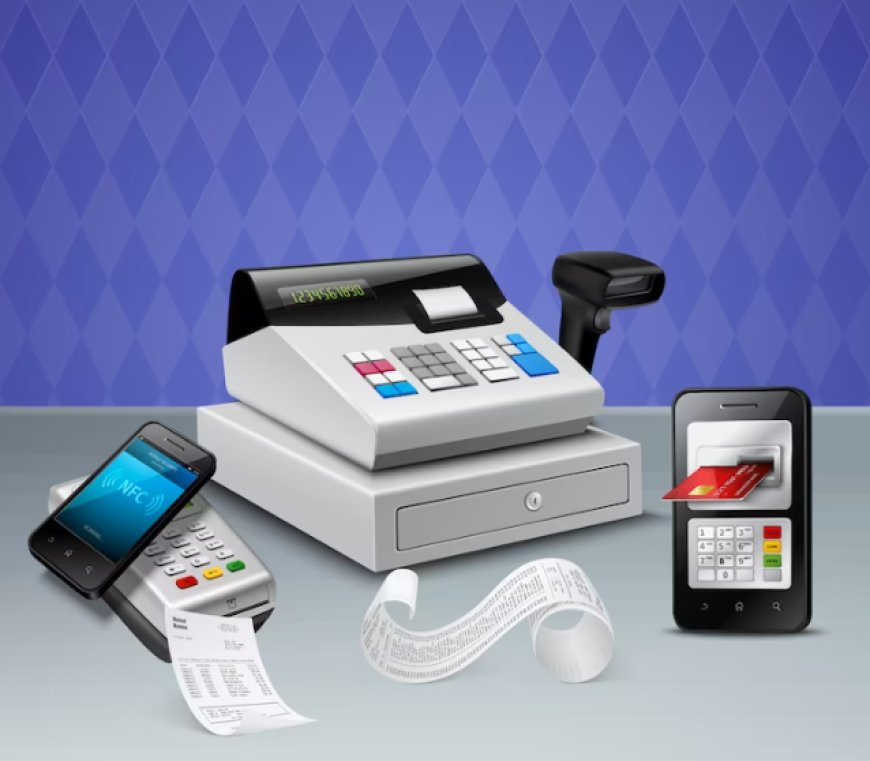Exploring the Future of Receipts with OCR Technology

Introduction to OCR Technology
Ready to say goodbye to piles of paper receipts cluttering your wallet or desk? With the rise of OCR (Optical Character Recognition) technology, the future of receipts is looking brighter than ever. Let's dive into how this cutting-edge tech is revolutionizing the way we handle transactions and paving the way for a more efficient and sustainable future.
The Evolution of Receipts
In the not-so-distant past, paper receipts were the norm for recording transactions. Customers would walk away with a physical slip of paper as proof of purchase. However, this traditional method came with its limitations: fading ink, lost receipts, and environmental concerns.
As technology advanced, digital receipts started to gain popularity. Email receipts and mobile apps allowed for a more convenient and eco-friendly way to keep track of purchases. This shift towards digitalization marked a significant step in the evolution of receipts.
Now, with OCR (Optical Character Recognition) technology making waves in various industries, including retail and hospitality, we are witnessing another transformation in how receipts are processed and managed. By digitizing printed text from paper documents like receipts into editable data, OCR is streamlining workflows and enhancing efficiency like never before.
The future holds exciting possibilities as we continue to adapt to innovative technologies that revolutionize how we interact with everyday items like the humble receipt.
Benefits of Using OCR for Receipts
Let's dive into the benefits of utilizing OCR technology for receipts in retail and hospitality industries. One significant advantage is the ability to streamline data entry processes, saving valuable time and reducing human error. By automating receipt scanning and extraction, businesses can improve efficiency and accuracy in managing financial transactions.
Moreover, OCR technology enables quick access to digital receipts, eliminating the need for physical storage space or manual filing systems. This not only promotes a more organized workflow but also enhances customer service by facilitating easy retrieval of purchase information when needed.
Furthermore, leveraging receipt OCR can enhance compliance with regulatory requirements by ensuring accurate record-keeping and audit trails. This can help businesses maintain transparency and accountability in their financial operations while minimizing risks associated with inaccurate documentation.
Integrating OCR technology into receipt management systems offers a myriad of benefits that contribute to operational excellence and improved customer satisfaction levels.
Implementation of OCR in Retail and Hospitality Industries
Imagine walking into a retail store or a restaurant where your receipt is seamlessly generated and stored digitally with the help of OCR technology. This innovation has revolutionized how businesses in the retail and hospitality industries manage their transactions efficiently.
By implementing OCR, retailers can streamline their checkout process by automatically extracting data from receipts, reducing human errors, and speeding up customer service. In the hospitality sector, OCR simplifies payment procedures, allowing for faster check-outs and improved guest experiences.
The adoption of OCR in these industries not only enhances operational efficiency but also provides valuable insights through data analytics. By digitizing receipts, businesses can analyze consumer spending patterns to tailor personalized marketing strategies effectively.
Integrating OCR technology into retail and hospitality sectors marks a significant step towards enhancing customer satisfaction and optimizing business operations for sustained growth in the digital age.
Potential Challenges and Solutions
When it comes to implementing OCR technology for receipts, there are potential challenges that businesses may face along the way.
One common challenge is dealing with variations in receipt formats and quality. Sometimes, receipts can be faded, crumpled, or poorly printed, making it difficult for OCR systems to accurately extract data from them.
Another challenge is ensuring the privacy and security of sensitive information contained in receipts. Businesses must take measures to protect customer data from unauthorized access or breaches when using OCR technology.
Additionally, integrating OCR systems into existing retail or hospitality infrastructure can pose technical challenges. Compatibility issues with legacy systems or software may arise, requiring careful planning and execution during implementation.
Despite these challenges, there are solutions available to mitigate risks and ensure a smooth transition to using OCR for receipts. Implementing robust data validation processes, encryption protocols, and regular system updates can help address security concerns.
Moreover, investing in training programs for staff members on how to use and troubleshoot OCR systems effectively can enhance overall efficiency and accuracy in receipt processing. By proactively addressing these challenges with practical solutions, businesses can unlock the full potential of OCR technology for optimizing their operations.
Impact on Sustainability and Paper Waste Reduction
As we move towards a more sustainable future, the impact of OCR technology on reducing paper waste cannot be overlooked. By digitizing receipts through OCR, businesses can significantly decrease their reliance on paper-based records. This shift not only streamlines operations but also contributes to environmental conservation efforts.
Reducing the need for printed receipts means less paper consumption, ultimately leading to fewer trees being cut down and less energy used in production processes. Additionally, digital receipts eliminate the disposal of physical paper, reducing waste that often ends up in landfills or oceans.
Moreover, by embracing OCR technology for receipt management, companies can demonstrate their commitment to sustainability and attract eco-conscious consumers. This shift aligns with the growing demand for environmentally friendly practices in today's market landscape. As we continue to explore the possibilities of OCR in revolutionizing receipt management, it's clear that the positive impact on sustainability and paper waste reduction is a significant step towards a greener future.
Future Possibilities and Innovations
As technology continues to advance at a rapid pace, the future possibilities and innovations of OCR technology for receipts are truly exciting. Imagine a world where all your receipts are automatically digitized and stored in the cloud with just a snap of your camera. No more paper clutter or lost receipts - everything organized neatly in one place.
With advancements in machine learning and artificial intelligence, OCR technology can not only accurately extract data from receipts but also provide valuable insights for businesses. From analyzing spending patterns to predicting consumer behavior, the potential applications are endless.
Furthermore, integrating OCR with blockchain technology could revolutionize transparency and trust in transactions. Imagine being able to verify the authenticity of a receipt instantly using immutable blockchain records.
The possibilities for enhancing customer experiences through personalized offers based on receipt data are vast. Retailers can leverage this information to tailor promotions and recommendations that resonate with individual preferences.
Innovations like real-time receipt processing and instant cashback rewards are on the horizon, reshaping how consumers interact with their purchases. The future of receipts powered by OCR is indeed full of promise and innovation!
Conclusion
In a world where digital transformation is reshaping industries, OCR technology presents an exciting opportunity to revolutionize the way receipts are processed and managed. With its ability to extract data quickly and accurately, OCR offers numerous benefits for businesses in retail and hospitality. From improving efficiency and accuracy to reducing paper waste and enhancing sustainability efforts, the potential of OCR technology in receipt management is vast.
As we look towards the future, it's clear that OCR will continue to play a significant role in streamlining operations and enhancing customer experiences. By embracing this innovative technology, businesses can stay ahead of the curve and unlock new possibilities for growth and success. The evolution of receipts with OCR technology marks a pivotal moment in digital transformation, paving the way for more efficient processes, improved analytics, and enhanced customer interactions.
The future of receipts is here – powered by OCR technology.
What's Your Reaction?
 Like
0
Like
0
 Dislike
0
Dislike
0
 Love
0
Love
0
 Funny
0
Funny
0
 Angry
0
Angry
0
 Sad
0
Sad
0
 Wow
0
Wow
0














































